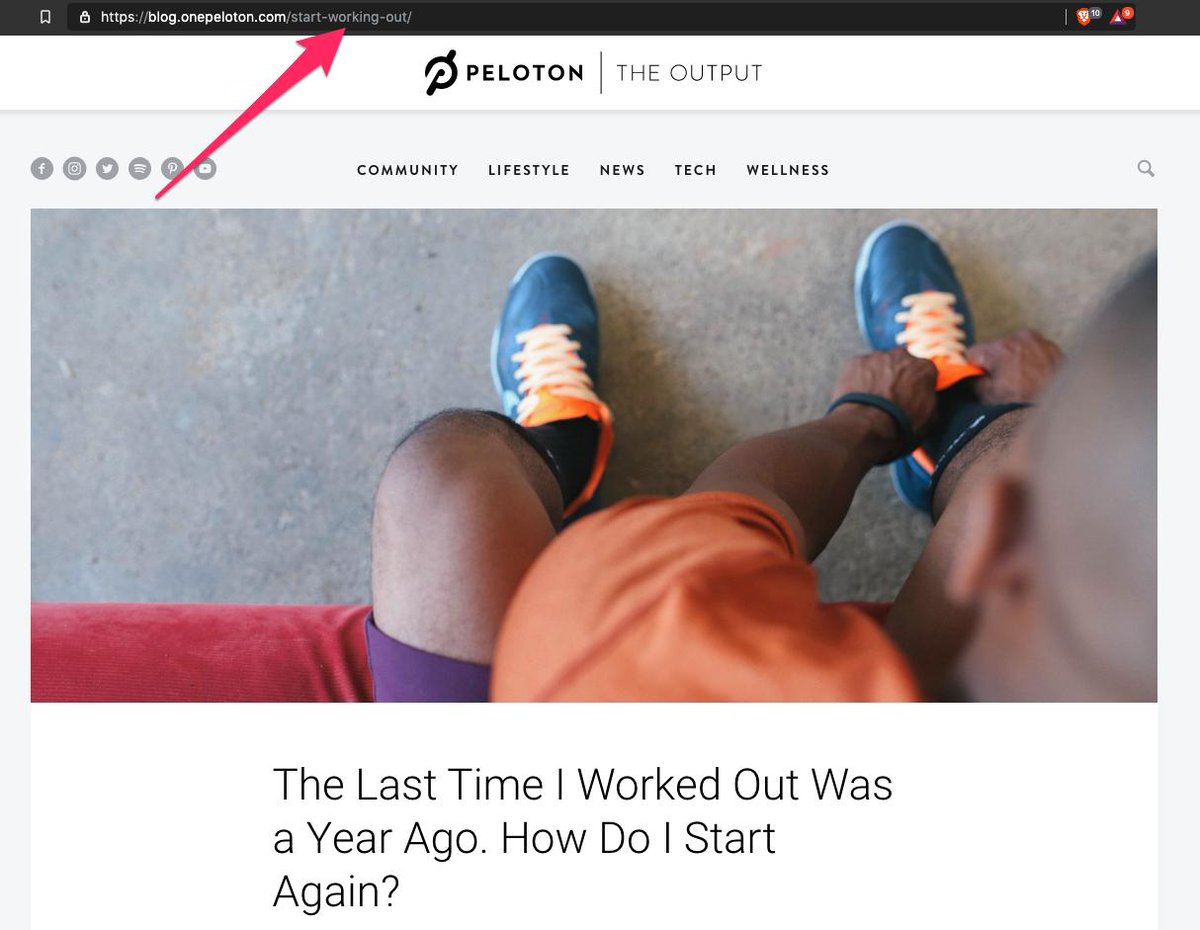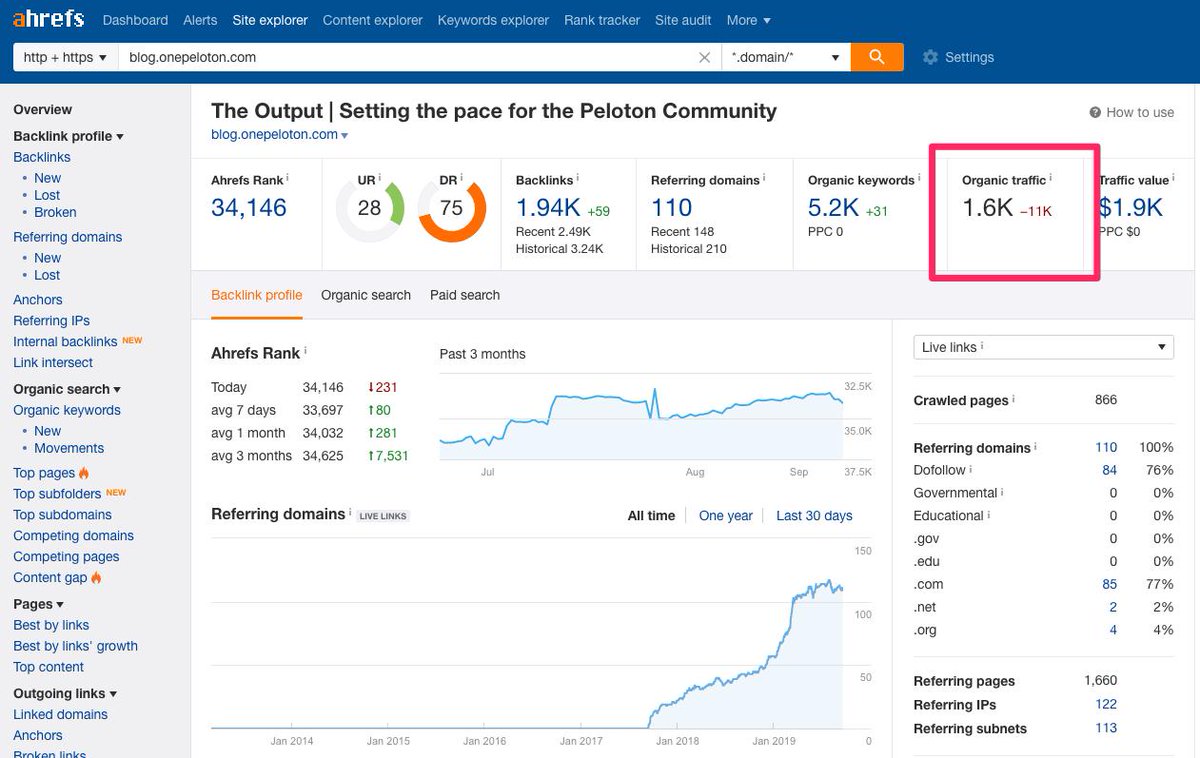🥁🥁🥁 Today's thread is on... 🥁🥁🥁
@onepeloton! 🚴♂️
Here are some of the highlights in text as well.
- Search traffic
- Conversions
- Sharing
- Link building
But these articles don't really fit those categories. They aren't good for converting readers, wouldn't be very viral, wouldn't solicit links from other sites, and aren't focused on search terms.
The "The Last Time I Worked Out Was a Year Ago. How do I Start Again" article has "start working out" as the slug: blog.onepeloton.com/start-working-…

If so, there's a ton they could improve.
It comes in at just over 500 words.
That tells me they probably hired a freelance writer to bang out 500 word articles, which will rarely get you anywhere.
It's too short to be useful, and very unlikely to get ranked by Google.
Will Peloton's articles like this rank? No. They're too short, and don't provide enough value to be competitive.
When we do this for sites, we've seen anywhere from a 50-250%+ lift in organic traffic in the first 3-6 months. It's a hugely effective strategy.
Short articles aren't doing anything for them.
They should give new guidelines to the writers they have, or hire new writers who can do the long-form content they need to be competitive.
(Or hire us to do it, of course).
The minimum cadence we've seen for good SEO results in a meaningful amount of time is 2 posts per week, but more always helps.
We have some clients doing 10+ posts per week 😱.
We did 4 posts per week on Cup & Leaf, and that worked out pretty well:
growthmachine.com/blog/seo-case-…
A good SEO team could do some research on all the Wellness topics relevant to Peloton target customers, and then design a content strategy around those topics.
- Shallow content
- No keyword targeting strategy
- Irregular publishing
- Old content not doing anything
Fix those, and the Peloton blog (or yours) can grow like wild.
And here's that video breakdown link again:










